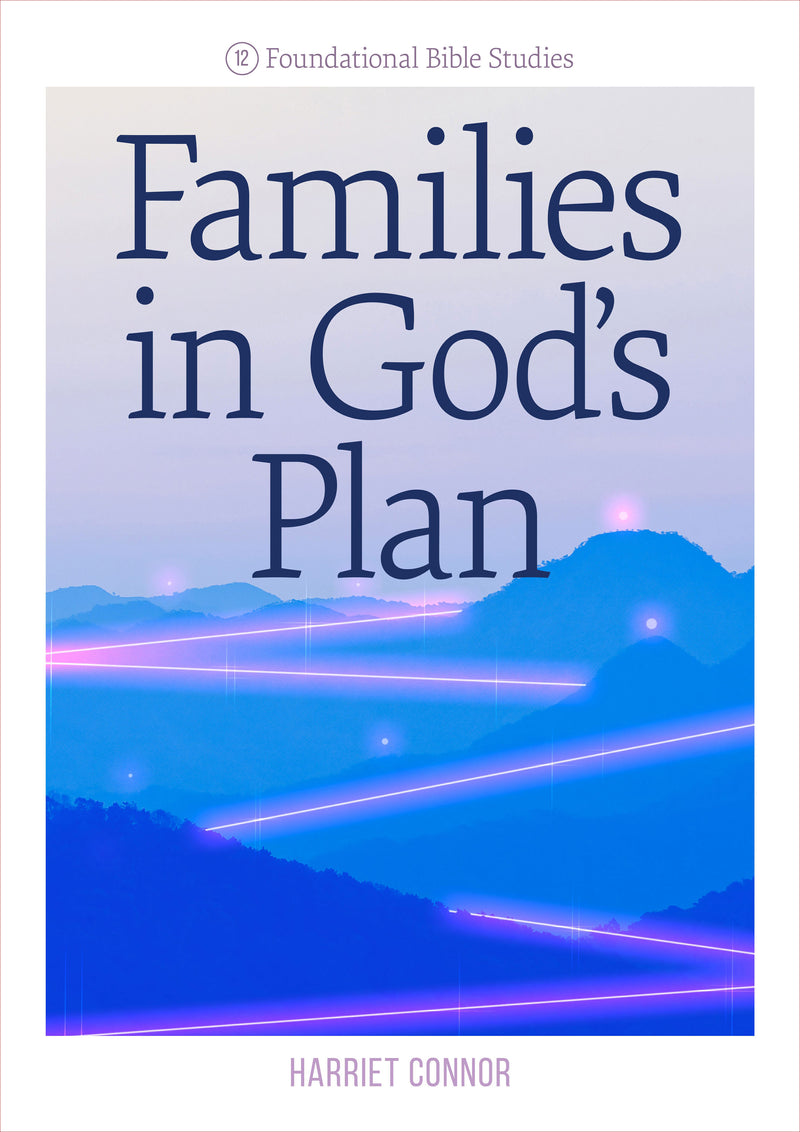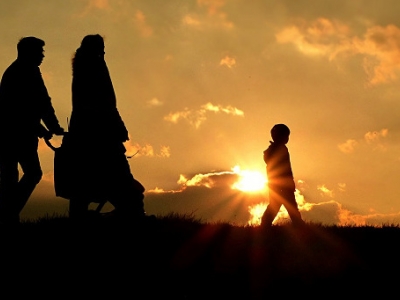
Duty: getting love into the right places
Cathy McKay explains why parenting out of ‘duty’ is no bad thing.
Holding a baby, whose needs are hard to understand, we get in the habit of asking, ‘What do they want?’. The baby grows into a toddler and then a preschooler and before you know it, they are taller than you. If the dependent years of mothering are built on trying to solve the question, ‘What do they want?’, then we will miss out on the work we’ve been entrusted with and we’ll probably not enjoy doing it. The questions we ask form the character of our children.
Most people assume that loving someone means giving that person what they want. When mums do this, we measure our mothering by how pleased our children are. This becomes unsupportable by the time you have three children (perhaps this is why many people don’t have more). Given human desires are so changeable and bent away from goodness, given humans have trouble knowing the difference between what we want and what we need, ‘want’ is a poor foundation for mothering. We need something solid outside human whims.
A better question
God says that love is always about doing what is good—the very best possible good—for that other person. Neither we nor our children are wise and holy enough to define what that good is. Quite the opposite. We need God to tell us. Duties to our children need to centre on God, otherwise, we end up giving our kids the wrong thing. That’s another reason why we need our Bible open, to help us see.
When duty is disordered, it’s all about what the other person wants from us. This sort of duty is destructive. Duty is a good that is due to someone else, but the someone else is not the one who determines what that good is. The good given through duty is a good which is defined by God, in a relationship ordained by God. Good duty is done for God’s sake, in God’s way, beginning with God’s love.
To do God-centred duty as we raise the children he has entrusted to us, our most common question must be, ‘What is good for them?’. And the answer must come from God’s Bible. If mothering is a puzzle always trying to figure out, ‘What do they want?’, then the child is the authority, defining the terms and being trained to expect parental duty to be about him. This question presumes the child has a mature sense of what is wise and good. But children haven’t lived long enough to develop that yet. To know and choose what God says is good is something that needs to be trained and learned. That’s what we’re parenting for! It’s the job of parents to discern what the good is and to apprentice our children into it. Hour by hour, it’s our job to help our kids grow into God-centred goodness. That is what love is; God’s and, therefore, ours.
Loving in God’s image
God’s wholehearted, delighted love for us brings about our wholehearted, delighted love for him. Our love is an imperfect imitation, but he’s growing us to love in his image. This wholehearted, delighted love—from God and for God—leads to more love for others (have you read 1 John?). The pinnacle of God’s love is Jesus’ death on the cross. That monument of love is echoed, mirrored, reflected and refracted through the complex web of relationships and duties which God has ordained. As Paul says, marriage (a relationship with distinct duties) is a picture of Christ and his church (Ephesians 5). When the duties are done well, the picture is clearer. When done poorly, the picture of Christ and his church is blotted. God-centred duty channels and displays gospel love. God-centred duties are worked examples, living metaphors, signposts pointing to things otherwise unseen.
Duty is one of God’s means of getting love into the right places, in the right way, at the right time. Paul’s letters habitually list off the range of household relationships and duties Christians are placed in by God. Paul’s expectation is that the gospel makes us better, not sloppier, at doing what we’re responsible for. Duty helps us discern the shape of love in different relationships. Duty clarifies what to do, how to do it and when to do it. God-centred duty, instead of being about bare minimums, means we end up giving more than we otherwise would. While disordered duty shrinks and shrivels, God-centred duty is expansive and enlivening.
The bonds of duty
God-centred duty respects the ties of responsibility God himself has made, because these bonds of duty were actually his idea. He made marriage, he made families, he made us to be social beings. Duties within these relationships are not merely social constructs that people have evolved. When God gives the gift of certain relationships, he gives the gift of particular responsibilities within those relationships. When God says something is good, we are not free to dismiss it. Duty acknowledges we are part of an economy of relationships, that we are connected to others. Duty says there are good things we owe to some people, in some contexts, which we don’t owe to everyone, everywhere, all the time. Duty is a concession to our finite creatureliness: we can only be in one place at a time; we need to choose what we do and don’t do. Duty helps us order our limited resources in a world of infinite possibilities.
We are born, or birth, into some duties (and cannot choose to be apart from these people without great cost). There are other duties we enter into by consent (like marriage or a business contract). Husbands and wives, parents and children, employers and employees, civil authorities, church elders, neighbours, buyers and sellers, all have responsibilities peculiar to their spheres. Part of being faithful followers of Jesus is understanding what God has to say in each of these. For a Christian, the duties of each relationship are met, not because the other person tells us to, but because God does. We fulfil our duties out of reverence for Christ.
Wives, submit to your husbands, as is fitting in the Lord. Husbands, love your wives, and do not be harsh with them. Children, obey your parents in everything, for this pleases the Lord. Fathers, do not provoke your children, lest they become discouraged. Slaves, obey in everything those who are your earthly masters, not by way of eye-service, as people-pleasers, but with sincerity of heart, fearing the Lord. Whatever you do, work heartily, as for the Lord and not for men, knowing that from the Lord you will receive the inheritance as your reward. You are serving the Lord Christ. For the wrongdoer will be paid back for the wrong he has done, and there is no partiality.
Masters, treat your slaves justly and fairly, knowing that you also have a Master in heaven.
Colossians 3:18–4:1 (ESV, emphasis mine)
Our duties to other people are done for the Lord Jesus. We give love, honour, respect and service where it is due, not primarily because of the merit of that person, but because God organised the world a certain way and we’re honouring him. We’re trusting his wisdom in the order he has built into creation. The duties of motherhood are created by God and are to be done for him. When God puts children in our lap, this is our work ‘as unto the Lord’. We don’t need a special message from God about what our primary duties are. If he has given you a Bible and joined you to a husband and children, he has spoken.
God-centred duties are not evenly distributed. There’s asymmetry, with some people owed and others owing. Parents owe their children more than children owe their parents. That’s not to say children owe their parents nothing, but what they owe each other is different and changes over time. The good owed is not a carbon copy. This asymmetry is why mums so often lament how empty they feel, like they’ve lost themselves. We need a supply for the giving, a source outside of ourselves. Christians, we have him and he has us. Jesus is so much better than a day spa.
God’s grace is asymmetrical. God gives salvation, and all that is bound up in it, to the undeserving who lean entirely on him. He pours out his gifts, at great cost to himself. As we know God’s asymmetrical kindness to us, it is less jarring to live with the asymmetrical duties of motherhood. In fact, they become strangely lovely, unexpectedly (eventually) replenishing. Even as they empty us. It turns out that doing what is good for our children is really good for us too.
This article originally appeared at Light Duties in two parts: 'Giving children what they want' and 'God-centred duty: the conduit of love'.).
---
Cathy McKay lives in regional NSW with her husband and their six children, whom she homeschools. She believes that deeper convictions make better mums with lighter hearts. That’s why she started writing at Light Duties, where she works through God’s word, scouting out the features of faithful Christian motherhood.

Families in God's Plan
From beginning to end, our lives are profoundly shaped by our family ties to those who came before us and to those who will come after us.
For more articles from Growing Faith, subscribe to our monthly e-newsletter.
To hear about the latest books and resources from Youthworks Media, subscribe here.








